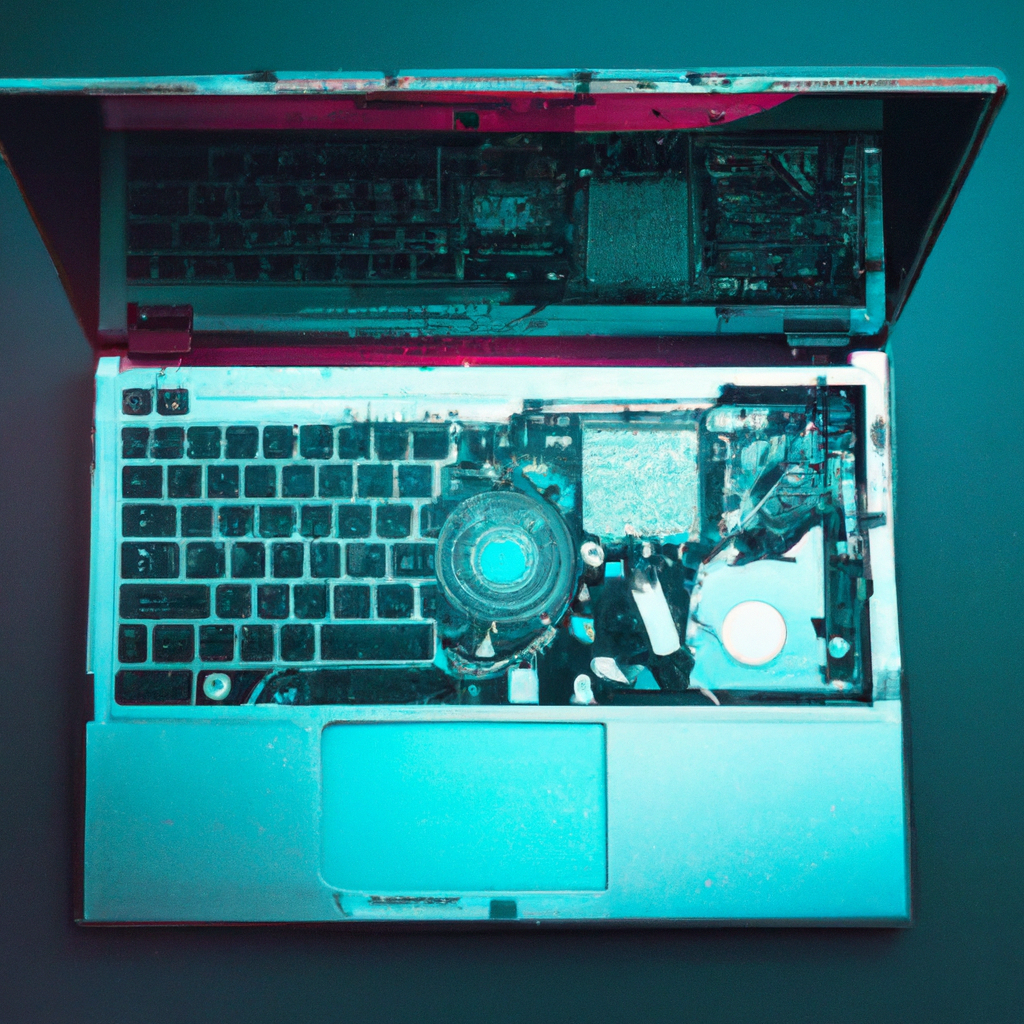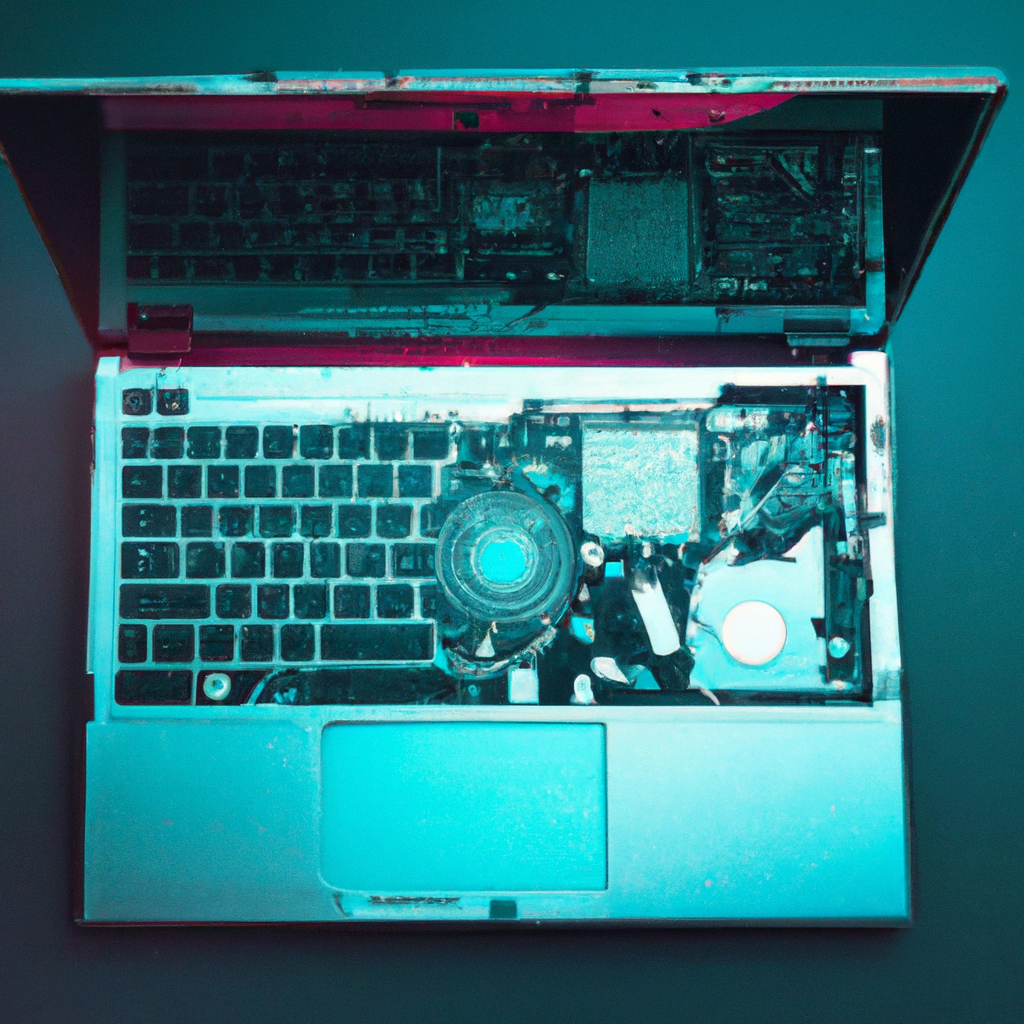So you’ve got yourself a computer, huh? Whether it’s a brand new shiny laptop or a hand-me-down desktop, one question continues to loom overhead: how long should you actually keep this thing? It’s a common dilemma among computer owners, as technology advances at breakneck speed and the lifespan of electronic devices seems to be shrinking. In this article, we’ll discuss the lifespan of a computer, factors to consider when making this decision, and tips to help you determine the right time to bid farewell to your trusted companion.

Factors to Consider
When deciding how long to own a computer, there are several important factors to consider. These factors include usage, technology advancements, performance, warranty, and budget. Taking these factors into account will help you make an informed decision about how long to keep your computer before upgrading.
Usage
The first factor to consider is how you intend to use your computer. Are you using it for personal or professional purposes? Understanding the intended purpose of your computer will help determine if it meets your specific requirements. If you are a professional who relies heavily on specialized software or needs a powerful machine for demanding tasks, you may need to upgrade more frequently. On the other hand, if you primarily use your computer for web surfing, email, and basic applications, it may be suitable for a longer period of time.
Technology Advancements
Technology advancements play a significant role in the lifespan of a computer. Hardware innovations and software upgrades can quickly make older machines outdated. Keeping up with the latest technology can enhance your computer’s performance and ensure compatibility with new software and applications. If you rely on cutting-edge technology or need to stay current with the latest software, you may need to upgrade more frequently.

Performance
Performance is a crucial factor to consider when determining the lifespan of a computer. Several aspects of performance should be evaluated, including speed, storage, RAM, graphics, and battery life. Over time, software updates and the increasing demands of new applications may slow down your computer. If your computer is struggling to handle your daily tasks or is noticeably slower than newer models, it may be time to consider an upgrade.
Warranty
Warranty coverage is an important consideration when deciding how long to own a computer. Most computers come with a manufacturer’s warranty that covers hardware defects or malfunctions. The length of coverage varies and can range from one to several years. Additionally, some warranties offer extendability options for an additional cost. Considering the length of coverage and the potential costs of repairs outside of warranty can help you determine when it is a good time to upgrade.
Budget
Budget plays a significant role in the decision-making process of owning a computer. The initial investment of purchasing a new computer can vary greatly depending on the specifications and brand. Maintenance costs, such as software updates, antivirus subscriptions, and potential repairs, should also be considered. Additionally, the affordability of future upgrades, such as increasing storage or RAM, should be taken into account when determining the lifespan of a computer.
Typical Computer Lifespan
The average lifespan of a computer can vary depending on the type of device. Desktop computers generally have a longer lifespan compared to laptops, tablets, or smartphones due to their upgradability and components. A well-maintained desktop computer can last anywhere from 5 to 10 years before it becomes obsolete. Laptops, on the other hand, are typically replaced every 3 to 5 years due to advancements in portability and design. Tablets and smartphones have shorter lifespans, with people often upgrading every 2 to 3 years to take advantage of new features and capabilities.
Extending Computer Lifespan
While technology advances rapidly, there are measures you can take to extend the lifespan of your computer:
Regular Maintenance
Routine computer maintenance is crucial for ensuring optimal performance and longevity. This includes cleaning out dust and debris, keeping the operating system up to date, and regularly backing up important files. Regular maintenance can prevent system slowdowns and reduce the risk of hardware failure.
Hardware Upgrades
Upgrading certain hardware components can significantly prolong the lifespan of your computer. Adding more RAM or upgrading the storage drive can improve performance, while replacing an aging graphics card can enhance gaming capabilities. By selectively upgrading specific components, you can keep your computer running smoothly for longer.
Software Optimization
Optimizing your computer’s software can also contribute to an extended lifespan. This includes regularly uninstalling unnecessary programs, removing temporary files, and disabling unnecessary startup processes. Keeping your software streamlined and efficiently organized can improve performance and ensure your computer operates at its best for longer.
Virus Protection
Implementing robust virus protection is crucial to safeguarding your computer from malware and potential data loss. Regularly updating your antivirus software and running scans can prevent viruses from compromising your system’s performance or security. By protecting your computer from malicious threats, you can extend its lifespan and avoid the need for premature upgrades due to compromised security.
Data Backup
Backing up your important files and data is essential for protecting against potential loss or damage. Regularly creating backups ensures that even if your computer experiences a hardware failure or becomes infected with malware, you can still recover your valuable information. By regularly backing up your files, you can avoid the devastating consequences of data loss and extend the lifespan of your computer.
Signs It’s Time to Upgrade
While taking steps to extend the lifespan of your computer is important, there are clear signs that indicate when it’s time to upgrade:
Slow Performance
If your computer is consistently slow, taking longer to start up, load applications, or complete tasks, it may be a sign that it’s time to upgrade. Sluggish performance can indicate that your computer is struggling to handle the demands of modern software and applications.
System Errors
Frequent system errors, crashes, or freezes can be indicators of a hardware or software problem. While troubleshooting and repair attempts can sometimes resolve these issues, persistent errors may suggest that it’s time for a more advanced and updated system.
Incompatibility Issues
If you encounter compatibility issues when trying to install or run new software or peripherals, it may be a sign that your computer is becoming outdated. As technology advances, older systems may struggle to support the latest software or hardware, resulting in compatibility problems.
Insufficient Storage
If you consistently find yourself running out of storage space, it may be time to upgrade to a larger capacity drive. Insufficient storage can hinder your ability to save new files or install necessary applications, and upgrading to a larger storage drive can alleviate this issue.
Outdated Software
Using outdated software can pose security risks and limit your computer’s capabilities. As software companies release new versions with improved features and security enhancements, older software can become unsupported and vulnerable to potential threats. If your computer is unable to run the latest software updates, it may be time to consider upgrading.
Sustainable Technology Practices
In addition to considering the lifespan of your computer, it’s essential to practice sustainability and minimize the environmental impact of electronic waste. Here are a few sustainable technology practices to consider:
Recycling and Disposal
When your computer reaches the end of its usable life, it’s crucial to dispose of it responsibly. Recycling centers and e-waste programs can properly handle the recycling or disposal of electronic devices, ensuring that valuable materials are recovered and harmful substances are managed safely.
Donation Programs
If your computer still has some life left in it but is no longer suitable for your needs, consider donating it to a charitable organization or educational institution. Many programs provide refurbished computers to underserved communities, schools, or non-profit organizations, giving them access to technology they may not otherwise be able to afford.
Environmentally Friendly Manufacturing
When purchasing a new computer, consider brands that prioritize environmentally friendly manufacturing practices. Look for certifications or labels indicating compliance with sustainability standards, such as Energy Star or EPEAT. By supporting environmentally conscious manufacturers, you contribute to the overall reduction of the industry’s environmental footprint.
Energy Consumption
Minimizing energy consumption is another important consideration when using computers. Power-saving features, such as sleep modes or energy-efficient components, can significantly reduce the energy consumed by your computer. Additionally, using power strips with surge protection allows you to easily turn off multiple devices when they’re not in use, further reducing energy waste.
In conclusion, determining the lifespan of a computer involves considering multiple factors, including usage, technology advancements, performance, warranty, and budget. By understanding your specific needs, keeping up with technological advancements, evaluating performance, taking warranty coverage into account, and managing your budget effectively, you can make informed decisions about when it’s time to upgrade your computer. By implementing sustainable technology practices and considering proper disposal or donation methods, you can minimize the environmental impact of owning and disposing of electronic devices.
